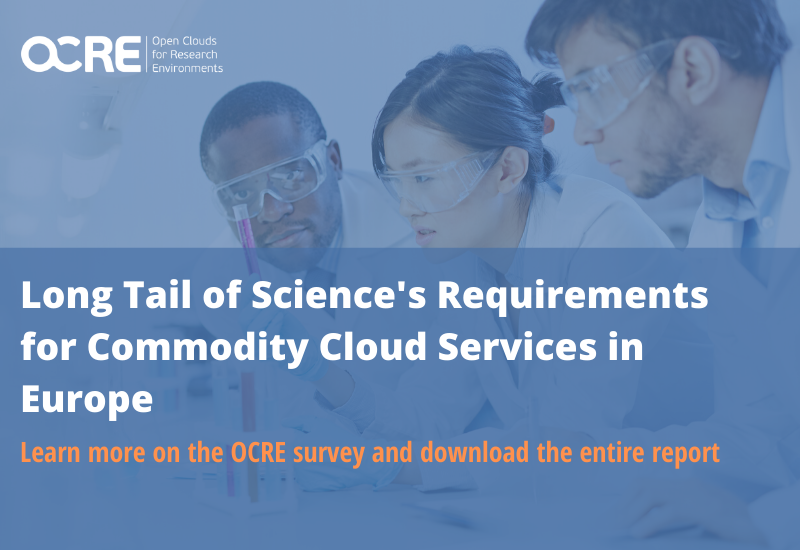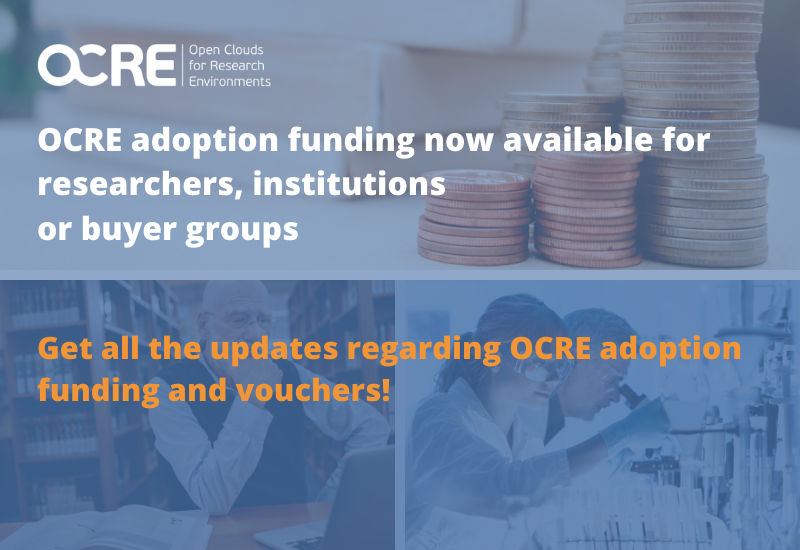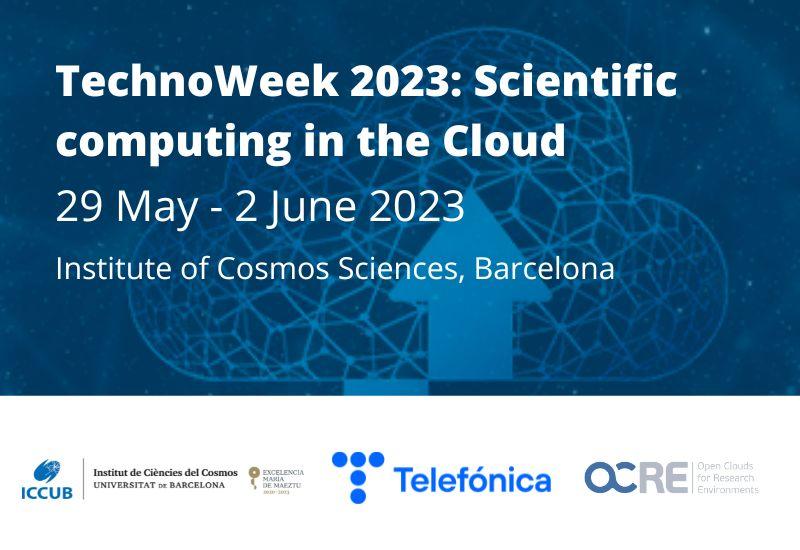
December 05,2019
News

EU has allocated € 9.5 million for Research and Education institutions that will adopt EOSC
One of the practical objectives of the H2020 European Commission funded project OCRE “Open Clouds for Research Environments", a 36 months initiative which began on the 1st January 2019, is to provide the European Open Science Cloud (EOSC) with offerings from commercial cloud and Earth Observation Service providers. OCRE aggregates requirements and demands of the research community into a public procurement (tender), to establish agreements with cloud service providers. OCRE also stimulates cloud adoption by researchers, through an EC cloud adoption fund.
Research and education institutions will be able to use directly these funds through ready to use agreements with the Europen Open Science Cloud (EOSC) service catalogue.
Learn more about the first three Stakeholder Groups that are availing of this opportunity
To stimulate and incentivise researchers to get involved and avail of different cloud services in the support of provisioning for an all-inclusive EOSC, that endorses “open innovation, open science and open to the world, OCRE has signed three Memorandum of Understanding (MoU) this Autumn respectively with a varied set of stakeholders:
- EOSC-hub Project
- OCRE will stimulate cloud adoption by researchers, through an EC cloud adoption fund of € 100.000 in vouchers usable in the Early Adopter Programme.
- Marie Curie Alumni Association (MCAA)
- OCRE will stimulate adoption of Cloud through an EC cloud adoption funds of € 50.000 in vouchers usable in Early Adopter Programme.
- EURODOC
- OCRE will stimulate cloud adoption throughout researchers communities making available € 50.000 in vouchers usable in the Early Adopter Programme.
Researchers will receive ready-to-use vouchers, for using resources at commercial cloud suppliers. One of the key outcomes of the MoU is that OCRE will become a participating partner within the Early Adopter Programme (EAP) of EOSC-hub.
What is an Early Adopter Programme?
The Early Adopter Programme (EAP), which has been introduced by EOSC-hub, is oriented to communities whose research activities have very complex digital needs, involving multiple state-of-the-art technologies, research infrastructures and services that are not available in their current research environment. The EAP will provide expertise and resources to help researchers become active users of EOSC. While providing this to the users, the programme also allows the EOSC service providers to gain insights into user needs and EOSC use cases and tweak their service offering to serve the researchers better.
Additional Information
- EOSC-hub project is funded by the European Union’s Horizon 2020 research and innovation programme under grant agreement no. 777536. EOSC-hub brings together multiple service providers to create the Hub: a single contact point for European researchers and innovators to discover, access, use and reuse a broad spectrum of resources for advanced data-driven research. The project is coordinated by EGI.eu supported by other 79 partners.
- The Open Clouds for Research Environments project (OCRE), is funded by the European Union’s Horizon 2020 research and innovation programme under grant agreement no. 824079. Its goal is to accelerate cloud adoption among European researchers. It will be achieved by bringing together the European research communities with Cloud service provider and Earth Observation. The consortium is made up of: GÉANT (Project coordinator), supported by the following partners: CERN, RHEA and Trust-IT.
- European Council for Doctoral Candidates and Junior Researchers (EURODOC), was founded in 2002, is an international federation of 28 national organisations of PhD candidates, and more generally of young researchers from 26 countries of the European Union and the Council of Europe. EURODOC’s mission is related with improving professional life of european researchers through increasing their voice and representativeness at the european level.
- Marie Curie Alumni Association (MCAA), launched in 2012 as restricted-access web-site, in November 2013 was held the first general meeting of web-site registered users and this paved the way for the official creation of the MCAA as an AISBL (international not-for-profit association). MCAA aim to connect researchers around the world encouraging international transdisciplinary collaboration and mobility, increasing their career opportunities.
To learn more, visit the EOSC Early Adopter Programme page and OCRE cloud adoption web page.
Join to the OCRE Community network and follow us on Twitter & Linkedin



